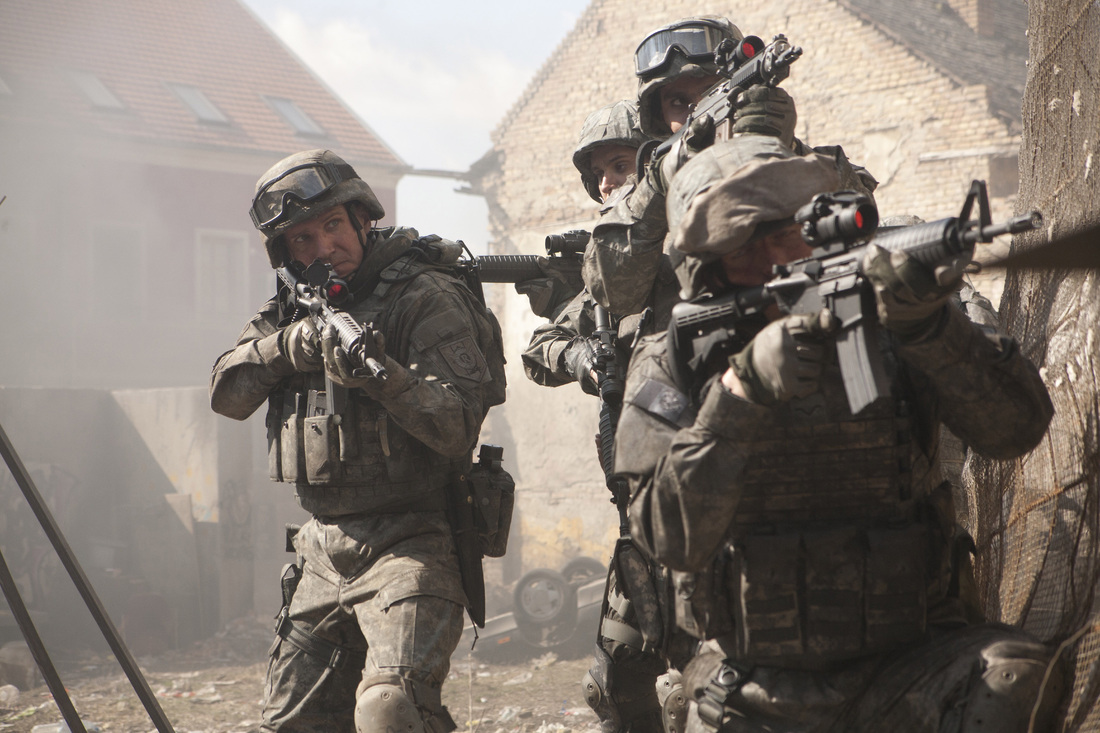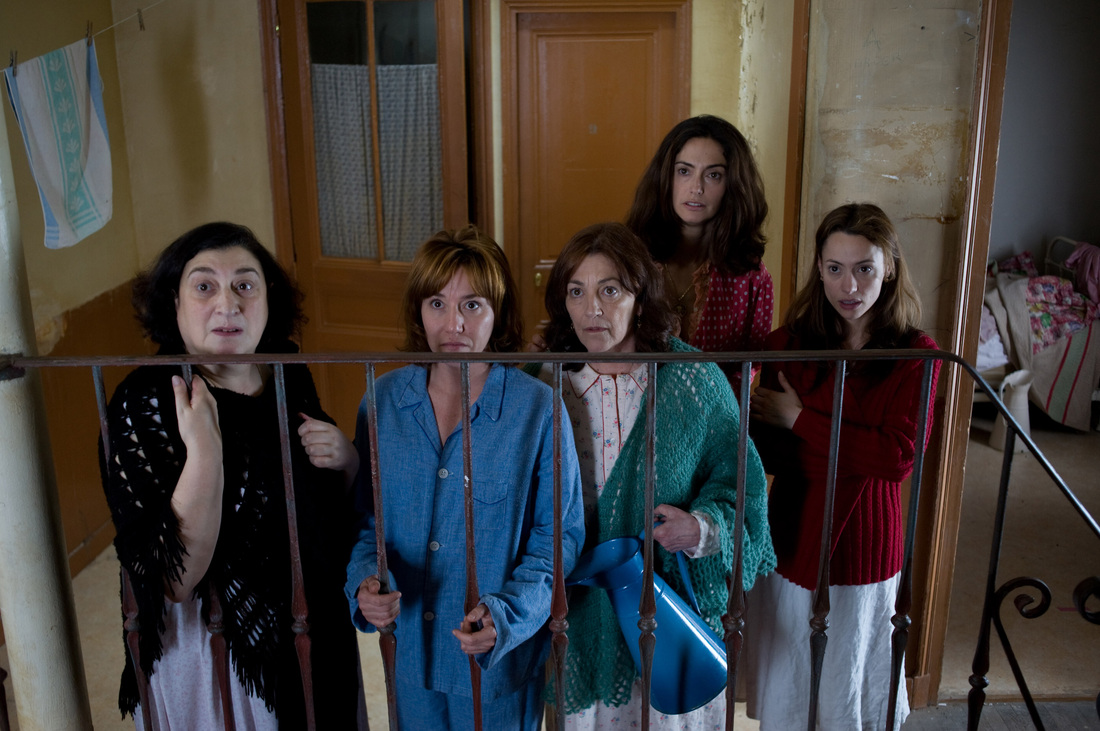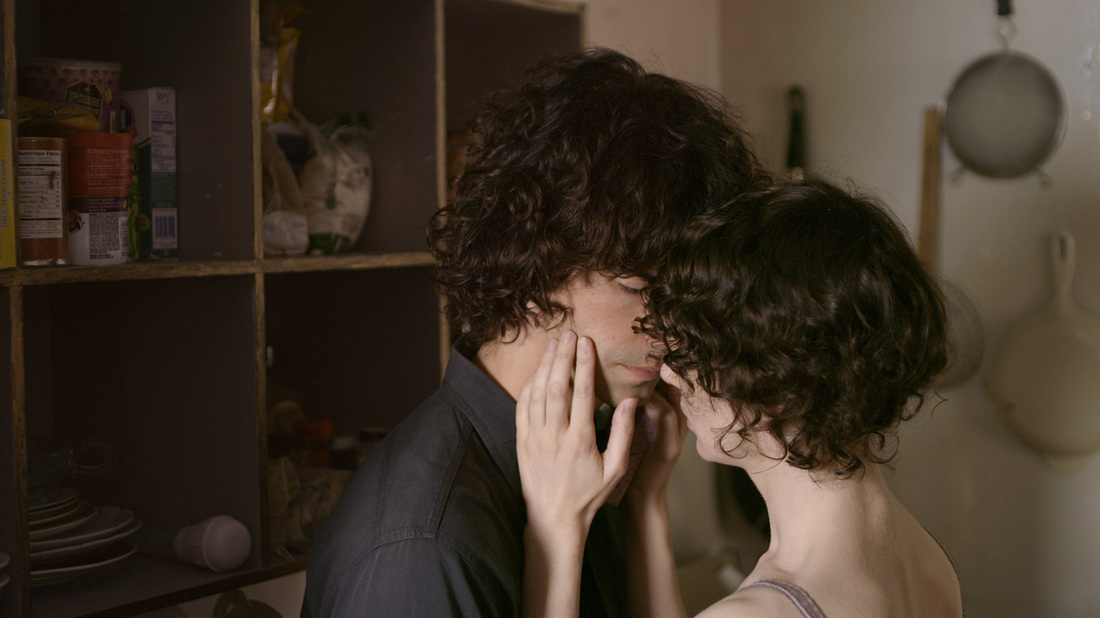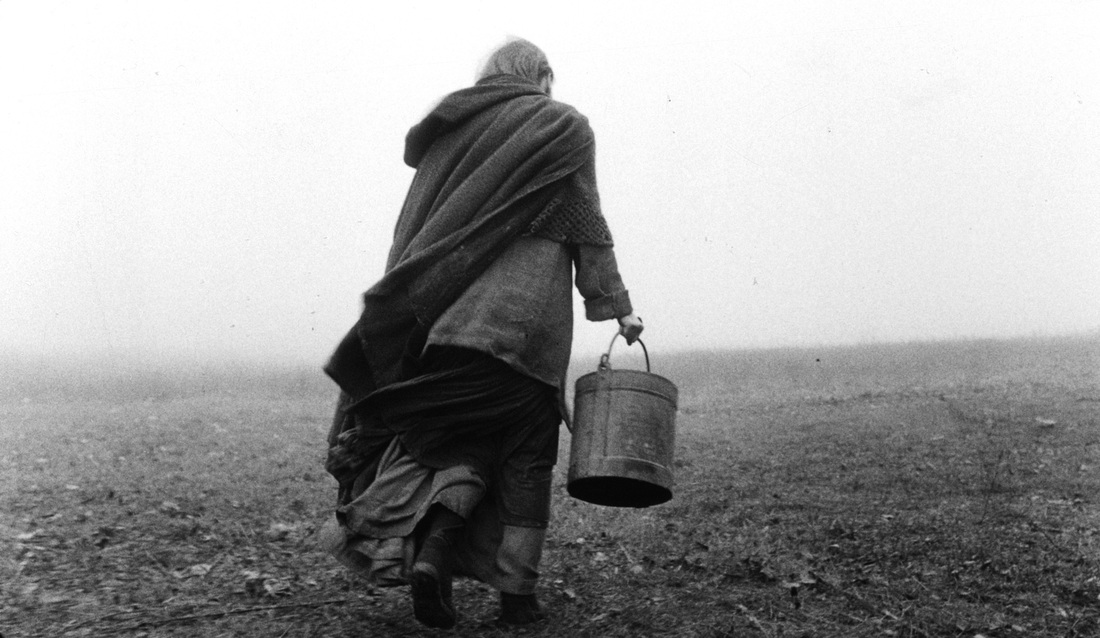14 March 2011
For part one, click here.
Sunday 13th February
Tales of the Night
The Berlinale logo looked good in 3D. I am sceptical about the new technology, but the next two films really used it well.
TALES OF THE NIGHT shows you don’t need a $200 million budget to make a stunning animation. Using silhouettes for the characters and dazzling backgrounds we watch a series of short stories linked together by three people – a boy, a girl and on old man, who use machines, computers and magic to conjure up fantasy tales in an unused cinema at night. The movie looks beautiful but the mini fairy tales were pretty simple morality tales, often about a boy rescuing a girl. A shame there wasn’t more depth and less conservatism. The style reminded me of the one of the first ever animated features, THE ADVENTURES OF PRINCE ACHMED (1926).
Pina
My favourite film of the Festival, director Wim Wenders’ recreation of some of ballet dancer/choreographer Pina Bausch’s work. From the gripping beginning, the film does not let up as one bravura sequence after another unfolds. We witness Pina’s own inventiveness with Wenders putting his own spin, plus we have her company talk about their experiences with her. There are sequences in a park, on a train, with water and with soil, to name a few. There is little reliance on archive footage, and Wenders could have just pointed and shot, instead there is breath-taking composition and great editing – the age mash-up sequence for instance (you’ll see what I mean!). A clear demonstration of the creativity of the human body and mind working together in harmony.
The Guard
Not easy following in the footsteps of the brother who wrote and directed the hilarious IN BRUGES. It also doesn’t help that you’re also making a crime comedy with Brendan Gleeson. Opening with N.E.R.D. blaring on the soundtrack, a car crash and an indifferent Irish cop Gerry Boyle (Gleeson) taking a tab (of acid?) from one of the dead victims, the tone is set pretty instantaneously. Gerry is an interesting mix of biting intelligence, apathy, black humour and honour. The plot is triggered with the death of a drug-dealer that is linked to a $500 million drug deal, which has brought the FBI to Ireland in the form of Don Cheadle’s Wendell Everett. They team up to try and foil the plan. THE GUARD is not as funny or as inspired as IN BRUGES, but there is a similar foul-mouthed baiting tone (railing against racism and small-mindedness); and is sometimes let down by the cinema in-jokes (which pulls you out of proceedings) and the fact that the characters are divided between the stupid and the erudite. Fun then, but a bit thin.
Press conference: The Guard
Actor Brendan Gleeson and writer-director John Michael McDonagh were on top form. I asked about the the bright and not-so-bright dichotomy, and Gleeson wisely said he saw the difference, like the world we live in now, as between the “people who care and the people who don’t”.
Sunday 13th February
Tales of the Night
The Berlinale logo looked good in 3D. I am sceptical about the new technology, but the next two films really used it well.
TALES OF THE NIGHT shows you don’t need a $200 million budget to make a stunning animation. Using silhouettes for the characters and dazzling backgrounds we watch a series of short stories linked together by three people – a boy, a girl and on old man, who use machines, computers and magic to conjure up fantasy tales in an unused cinema at night. The movie looks beautiful but the mini fairy tales were pretty simple morality tales, often about a boy rescuing a girl. A shame there wasn’t more depth and less conservatism. The style reminded me of the one of the first ever animated features, THE ADVENTURES OF PRINCE ACHMED (1926).
Pina
My favourite film of the Festival, director Wim Wenders’ recreation of some of ballet dancer/choreographer Pina Bausch’s work. From the gripping beginning, the film does not let up as one bravura sequence after another unfolds. We witness Pina’s own inventiveness with Wenders putting his own spin, plus we have her company talk about their experiences with her. There are sequences in a park, on a train, with water and with soil, to name a few. There is little reliance on archive footage, and Wenders could have just pointed and shot, instead there is breath-taking composition and great editing – the age mash-up sequence for instance (you’ll see what I mean!). A clear demonstration of the creativity of the human body and mind working together in harmony.
The Guard
Not easy following in the footsteps of the brother who wrote and directed the hilarious IN BRUGES. It also doesn’t help that you’re also making a crime comedy with Brendan Gleeson. Opening with N.E.R.D. blaring on the soundtrack, a car crash and an indifferent Irish cop Gerry Boyle (Gleeson) taking a tab (of acid?) from one of the dead victims, the tone is set pretty instantaneously. Gerry is an interesting mix of biting intelligence, apathy, black humour and honour. The plot is triggered with the death of a drug-dealer that is linked to a $500 million drug deal, which has brought the FBI to Ireland in the form of Don Cheadle’s Wendell Everett. They team up to try and foil the plan. THE GUARD is not as funny or as inspired as IN BRUGES, but there is a similar foul-mouthed baiting tone (railing against racism and small-mindedness); and is sometimes let down by the cinema in-jokes (which pulls you out of proceedings) and the fact that the characters are divided between the stupid and the erudite. Fun then, but a bit thin.
Press conference: The Guard
Actor Brendan Gleeson and writer-director John Michael McDonagh were on top form. I asked about the the bright and not-so-bright dichotomy, and Gleeson wisely said he saw the difference, like the world we live in now, as between the “people who care and the people who don’t”.
|
|
|
Monday 14h February
Coriolanus
I went in with huge expectations. What can Ralph Fiennes do with his directorial debut? He’s been in three Best Picture Oscar winners. I was sorely disappointed. Performances were top notch from himself, Vanessa Redgrave, Gerard Butler and Brian Cox, but the film was so flatly shot and the Shakespearian dialogue felt clunky from most mouths, especially the extras. This didn’t feel as natural as Baz Luhrman’s ROMEO AND JULIET nor as interesting as Ian McKellen’s RICHARD III. This looks like a modern Yugoslavia but is a country calling itself Rome. There are themes of fascism, self-determination, arrogance, betrayal and politicking; but it’s all a bit dull. Fiennes is mesmerising though, and Redgrave shows she’s still got it. “Would you have me false to my nature?” Coriolanus. This movie didn’t feel false, but deeply strained.
Women of the 6th Floor
There is a trend lately of dealing with the master-servant relationship. On TV we’ve had DOWNTOWN ABBEY and UPSTAIRS DOWNSTAIRS, and at the cinema there is THE HOUSEMAID and the upcoming ARTHUR remake. Set in 1960 we have a French rom-com about a soft-hearted master of the house falling in love with his confident maid. Adultery seems to be made acceptable due to his wife being obnoxious and out of touch (“We pay you to obey”), and the post-credit crunch unacceptability of such exploitation (being a metaphor for current working conditions). That aside, it is a lovely romance, with the characters’ enlightenment softening the qualms.
Good Morning to the World!
Another Forum experimental movie, here from Japan. We follow a teenage boy, Yuta, on a kind of slow-paced odyssey. He has friends but is pretty independent, as his mother is hardly around. She works away from home (and is winningly young at heart). One evening Yuta steals a homeless man’s bag. Before he can return it, the man appears to have been murdered. Yuta then feels he should find the man’s family to return it. The exclamation in the film’s title belies the lethargic pace, and repetitive nature of the movie – lots of static camera-work and long takes. Yuta looks to be striving for a creative occupation of his time, so do we.
Ashamed
A bolshy art teacher trashes one of her student’s work, but they end of deciding to work together. The student brings along her friend. This friend then recounts a tale of the love of her life, which may or may not be true. Is the shame lesbian love? The shame of unrequited love? I stopped caring long before the end.
|
|
|
Tuesday 15th February
The Future
Miranda July is hypnotic to behold – her does eyes and gentle sing-song voice are like catnip to me, coupled with the fact she is such a talented director, actor and writer. The lovely pure whimsy of ME AND YOU AND EVERYONE WE KNOW is replaced with a pessimistic streak absent from her previous film. There is still plenty of cuteness, including a cat recounting stuff perturbing it, but there’s also a sadder tone about the finiteness of relationships. Perhaps the tone is too contrasting for some, but I found this mixture of quirkiness and melancholy compelling. A couple’s cat goes to a vet for a month. Jason (Hamish Linklater) and Sophie (July) decide they only have this month left of freedom to do the things they always should’ve done before their sickly cat returns, and they spend the next five years looking after it (which would then make them 40, 40 is basically 50, and their life would effectively be over). Doing what you want turns into a prison rather than the cathartic freedom they hoped for. Surreal and moving.
The Turin Horse
Beginning with a voice over about Nietzsche, a horse and madness, director Bela Tarr then takes us on arduous but rewarding two and a half hour apocalyptic story of a man and his daughter living in the middle of nowhere. We watch their horrifically dull routine in black and white get progressively truncated as the world starts to end. Forget 2012 and BATTLE: LOS ANGELES, this is properly scary.
For part three, click here.







